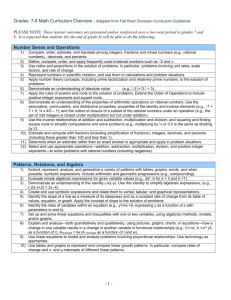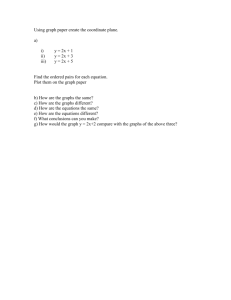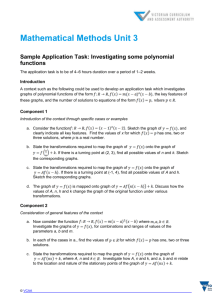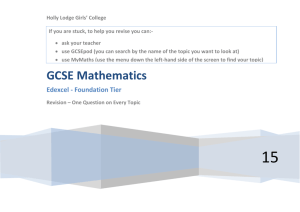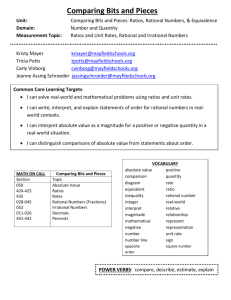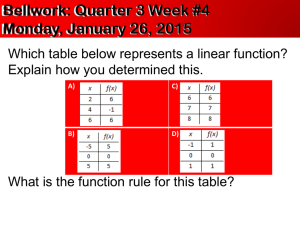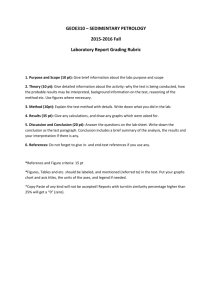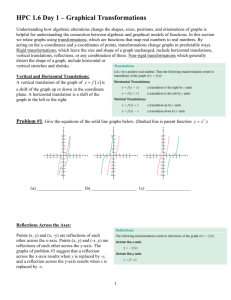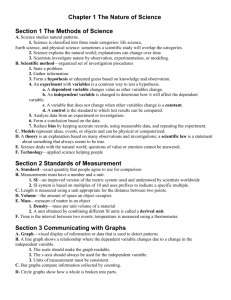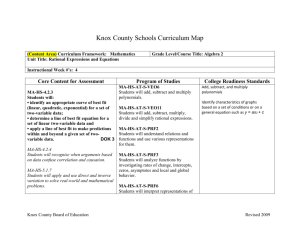Standard
advertisement
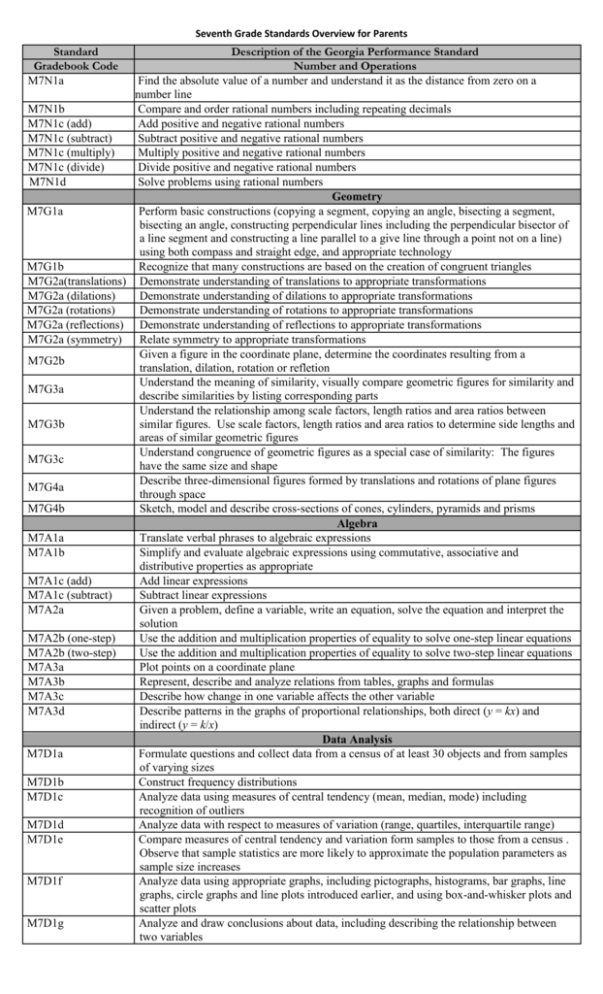
Seventh Grade Standards Overview for Parents Standard Gradebook Code M7N1a Description of the Georgia Performance Standard Number and Operations Find the absolute value of a number and understand it as the distance from zero on a number line M7N1b Compare and order rational numbers including repeating decimals M7N1c (add) Add positive and negative rational numbers M7N1c (subtract) Subtract positive and negative rational numbers M7N1c (multiply) Multiply positive and negative rational numbers M7N1c (divide) Divide positive and negative rational numbers M7N1d Solve problems using rational numbers Geometry M7G1a Perform basic constructions (copying a segment, copying an angle, bisecting a segment, bisecting an angle, constructing perpendicular lines including the perpendicular bisector of a line segment and constructing a line parallel to a give line through a point not on a line) using both compass and straight edge, and appropriate technology M7G1b Recognize that many constructions are based on the creation of congruent triangles M7G2a(translations) Demonstrate understanding of translations to appropriate transformations M7G2a (dilations) Demonstrate understanding of dilations to appropriate transformations M7G2a (rotations) Demonstrate understanding of rotations to appropriate transformations M7G2a (reflections) Demonstrate understanding of reflections to appropriate transformations M7G2a (symmetry) Relate symmetry to appropriate transformations Given a figure in the coordinate plane, determine the coordinates resulting from a M7G2b translation, dilation, rotation or refletion Understand the meaning of similarity, visually compare geometric figures for similarity and M7G3a describe similarities by listing corresponding parts Understand the relationship among scale factors, length ratios and area ratios between M7G3b similar figures. Use scale factors, length ratios and area ratios to determine side lengths and areas of similar geometric figures Understand congruence of geometric figures as a special case of similarity: The figures M7G3c have the same size and shape Describe three-dimensional figures formed by translations and rotations of plane figures M7G4a through space M7G4b Sketch, model and describe cross-sections of cones, cylinders, pyramids and prisms Algebra M7A1a Translate verbal phrases to algebraic expressions M7A1b Simplify and evaluate algebraic expressions using commutative, associative and distributive properties as appropriate M7A1c (add) Add linear expressions M7A1c (subtract) Subtract linear expressions M7A2a Given a problem, define a variable, write an equation, solve the equation and interpret the solution M7A2b (one-step) Use the addition and multiplication properties of equality to solve one-step linear equations M7A2b (two-step) Use the addition and multiplication properties of equality to solve two-step linear equations M7A3a Plot points on a coordinate plane M7A3b Represent, describe and analyze relations from tables, graphs and formulas M7A3c Describe how change in one variable affects the other variable M7A3d Describe patterns in the graphs of proportional relationships, both direct (y = kx) and indirect (y = k/x) Data Analysis M7D1a Formulate questions and collect data from a census of at least 30 objects and from samples of varying sizes M7D1b Construct frequency distributions M7D1c Analyze data using measures of central tendency (mean, median, mode) including recognition of outliers M7D1d Analyze data with respect to measures of variation (range, quartiles, interquartile range) M7D1e Compare measures of central tendency and variation form samples to those from a census . Observe that sample statistics are more likely to approximate the population parameters as sample size increases M7D1f Analyze data using appropriate graphs, including pictographs, histograms, bar graphs, line graphs, circle graphs and line plots introduced earlier, and using box-and-whisker plots and scatter plots M7D1g Analyze and draw conclusions about data, including describing the relationship between two variables
